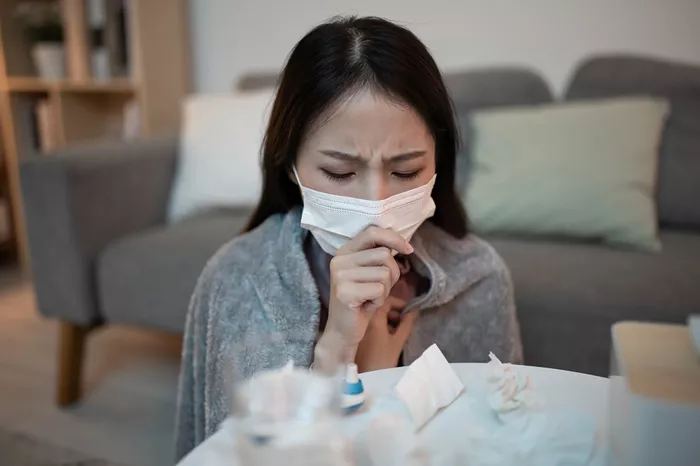Catching a cold is a common experience, but understanding its stages can help you manage symptoms effectively and recover faster. This article will guide you through the stages of a cold, explain the psychological impact of being sick, and provide tips for each stage to help you feel better.
Understanding the Common Cold
The common cold is a viral infection that affects your nose and throat. It is usually harmless but can make you feel miserable. Symptoms include a runny nose, sore throat, coughing, sneezing, and sometimes a mild fever. Colds are caused by different viruses, with rhinoviruses being the most common.
Colds are highly contagious and spread through droplets in the air or by touching contaminated surfaces. While most people recover within 7-10 days, the experience can vary depending on the stage of the cold and your overall health.
The Stages of a Cold
A cold typically progresses through three stages. Knowing which stage you are in can help you take the right steps to feel better.
Stage 1 Early Symptoms
The first stage of a cold is the incubation period. This is when the virus enters your body but hasn’t yet caused noticeable symptoms. It usually lasts 1-3 days. During this time, you might feel slightly off but not sick enough to recognize it as a cold.
As the virus begins to multiply, you may notice early signs like a scratchy throat, mild fatigue, or a slight headache. These symptoms are often subtle and easy to ignore. However, this is the best time to start taking care of yourself. Drink plenty of fluids, rest, and consider taking vitamin C or zinc to boost your immune system.
Stage 2 Peak Symptoms
The second stage is when the cold fully sets in. This is the most uncomfortable phase and usually lasts 2-4 days. Symptoms become more pronounced and may include
- A runny or stuffy nose
- Frequent sneezing
- A sore throat
- Coughing
- Mild body aches
- Low-grade fever
During this stage, your body is working hard to fight off the virus. You may feel tired and irritable. It’s important to rest as much as possible and stay hydrated. Over-the-counter medications can help relieve symptoms, but avoid overusing them. For example, decongestants can clear a stuffy nose, but using them for more than a few days can make congestion worse.
Stage 3 Recovery
The final stage is recovery. This is when your immune system has mostly defeated the virus, and symptoms begin to improve. You might still have a lingering cough or mild congestion, but you’ll feel much better overall.
Recovery usually takes 3-5 days, but it can vary. Some people bounce back quickly, while others take longer, especially if they have underlying health conditions. During this stage, continue to rest and eat nutritious foods to support your immune system. Gentle exercise, like walking, can also help you regain strength.
Psychological Impact of a Cold
Being sick can take a toll on your mental health. The discomfort and disruption to your daily routine can lead to feelings of frustration, irritability, and even sadness.
Emotional Responses
When you’re sick, it’s normal to feel down or anxious. You might worry about missing work or falling behind on responsibilities. These feelings are natural, but they can make recovery harder. Try to be kind to yourself and remember that it’s okay to take a break.
Coping Strategies
To manage the psychological impact of a cold, try these tips
- Stay connected with friends and family, even if it’s just through a phone call or text.
- Practice relaxation techniques like deep breathing or meditation to reduce stress.
- Focus on small, achievable goals, like drinking enough water or getting extra sleep.
Tips for Each Stage
Early Stage
- Start drinking warm fluids like tea or broth to soothe your throat and stay hydrated.
- Use a humidifier to keep the air moist and ease congestion.
- Consider taking immune-boosting supplements like vitamin C or echinacea.
Peak Stage
- Rest as much as possible to give your body energy to fight the virus.
- Use saline nasal sprays or steam inhalation to relieve congestion.
- Take over-the-counter medications as needed, but follow the instructions carefully.
Recovery Stage
- Gradually return to your normal activities, but avoid overexertion.
- Eat a balanced diet rich in fruits, vegetables, and lean proteins to support recovery.
- Practice good hygiene to avoid spreading the virus to others.
When to See a Doctor
Most colds can be managed at home, but there are times when you should seek medical attention. See a doctor if
- Your symptoms last more than 10 days.
- You have a high fever or severe headache.
- You experience difficulty breathing or chest pain.
These could be signs of a more serious condition, like the flu or a bacterial infection.
Conclusion
Understanding the stages of a cold can help you take the right steps to feel better and recover faster. By recognizing your symptoms and taking care of your body and mind, you can navigate a cold with confidence. Remember, it’s okay to rest and ask for help when you need it. Stay healthy!
Related topics:
What Cause BV To Keep Coming Back?
High Niacin Levels May Increase Heart Disease Risk, New Study…


